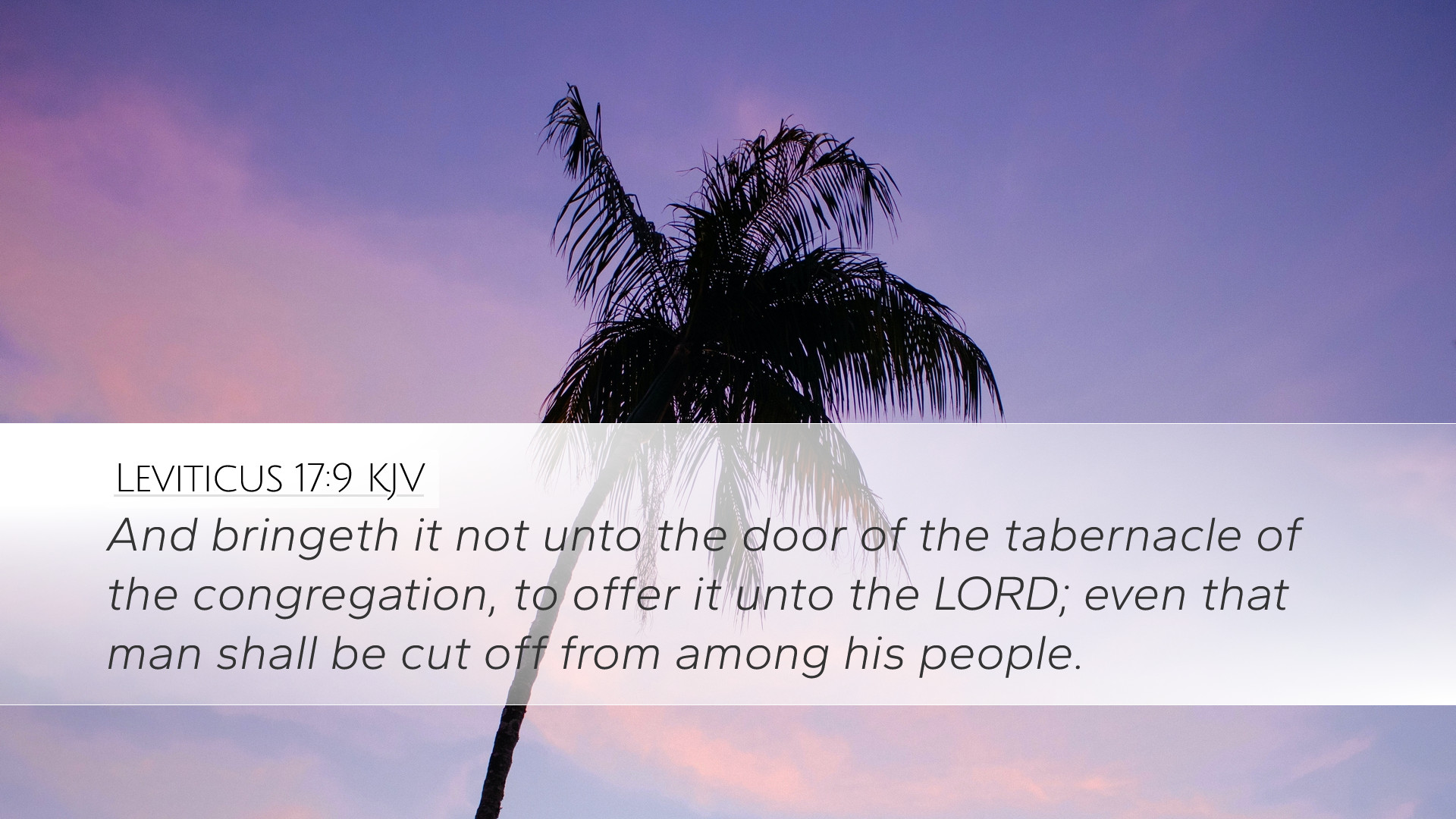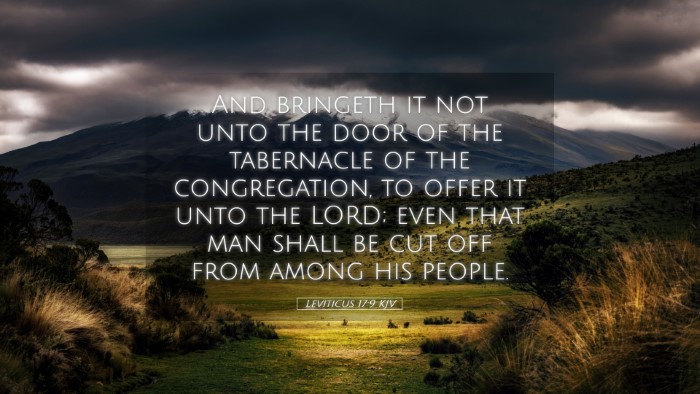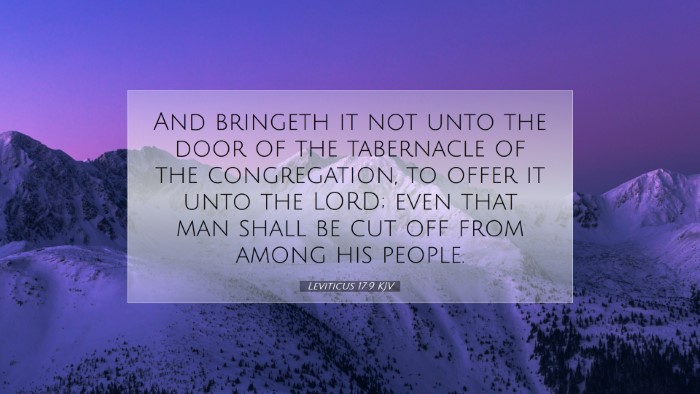Commentary on Leviticus 17:9
Verse Context: Leviticus 17:9 states: “And bring it not unto the door of the tabernacle of the congregation, to offer it unto the Lord; that man shall be cut off from his people.” This verse is part of a directive concerning the proper treatment of sacrifices and the significance of bringing offerings to the designated place of worship, emphasizing God's desire for order and holiness in worship.
Understanding the Verse
Matthew Henry observes that this command not only emphasizes the necessity of bringing sacrifices to the right location—the door of the tabernacle—but also highlights the serious consequence of failing to do so. Such an act represents a breach of covenant, which carries severe implications, including being "cut off from his people." This phrase indicates spiritual and communal severance, underscoring the communal aspect of worship.
Theological Insights
Albert Barnes elaborates on the theological significance of sacrifices, remarking that offering sacrifices in unauthorized places undermines their intended purpose. He notes that this prohibition accentuates the sanctity of God's presence among His people. The act of bringing an offering to the specified location is a sign of obedience and acknowledgment of God's sovereignty over the sacrificial process.
Adam Clarke contributes to this discussion by interpreting the phrase "cut off from his people" as reflective of God's holiness. He cautions that any act that diminishes the seriousness of sacrificial worship can lead to dire spiritual consequences. Clarke also emphasizes the significance of the blood in sacrificial rites, which serves as a means of atonement, signifying life and the seriousness of sin.
Practical Applications
For pastors and theologians, this verse serves as a reminder of the importance of worship within the community of faith. Each element of worship must align with God's directives, manifesting both reverence and order. The contemporary church can glean from this passage that the place and manner of worship are vital to maintaining the integrity of the faith community.
- Worship and Community: The act of communal worship must reflect God's requirements. Just as ancient Israel was called to worship at the tabernacle, so too are modern congregations called to gather with due gravity and sincerity.
- Obedience to Divine Directives: This passage challenges believers to examine their adherence to God’s commands. Disregard for divine instruction is not a minor matter; it is a serious violation that can lead to alienation from God and fellow believers.
- Understanding Sacrifice: Acknowledging Christ as the ultimate sacrifice, worship today still requires a heart aligned to God’s standards, and a recognition that worship is a privilege and a serious undertaking.
Conclusion
The instruction found in Leviticus 17:9 resonates deeply with the call for holiness, order, and reverence in worship. Each commentary from Matthew Henry, Albert Barnes, and Adam Clarke highlights the consequences of neglecting such serious directives and the importance of approaching God with the honor He deserves. For contemporary believers, this serves as a mandate to ensure their worship practices align with the holiness of God, reflecting a lifestyle of obedience and maintaining the bonds of community with one another.


